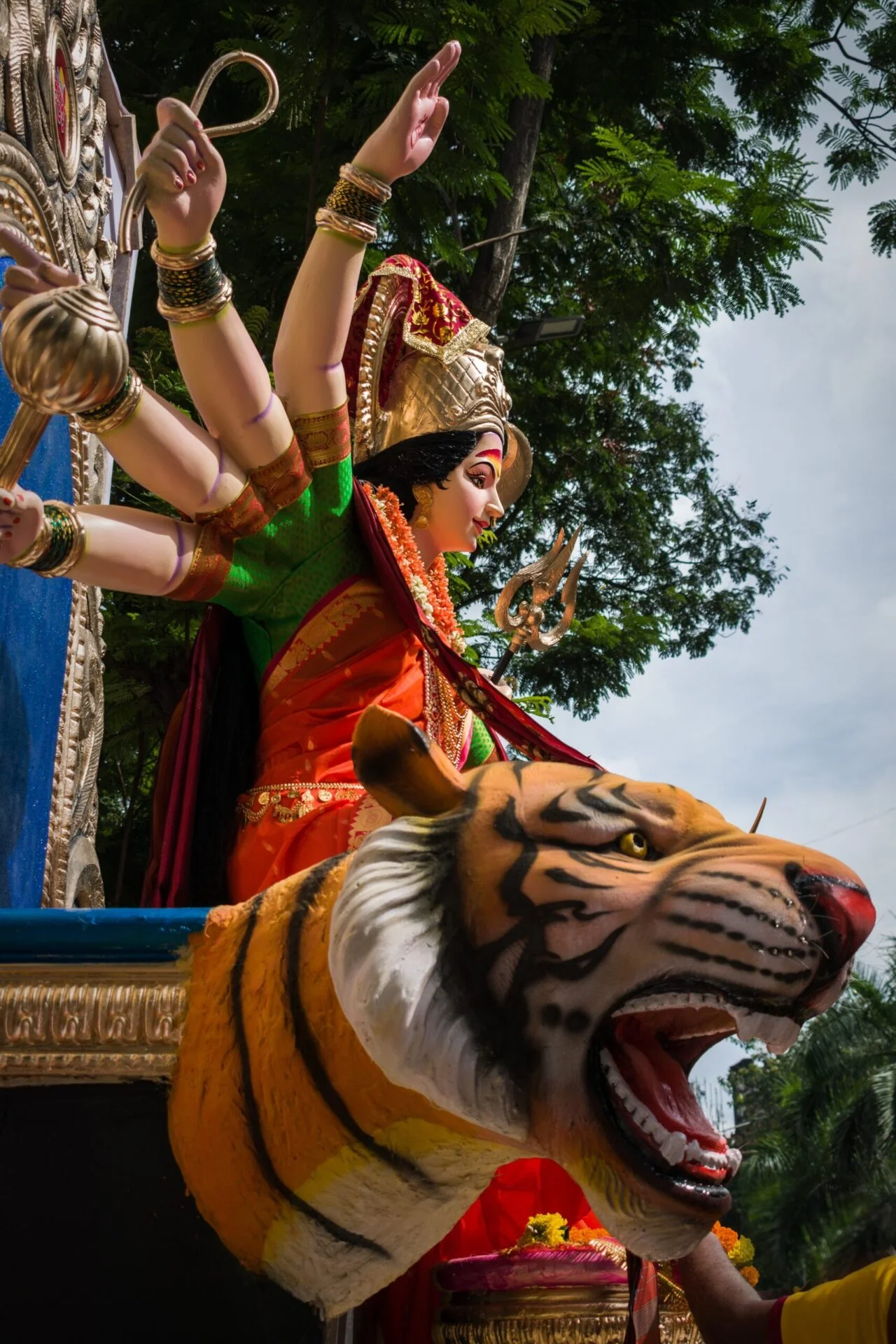You’re about to discover the fascinating significance of the number 5 in Hinduism. From the five elements of nature to the five senses, this article will take you on a journey through the profound symbolism and spiritual connections that make the number 5 an integral part of the Hindu faith. Get ready to explore the depths of this ancient religion and unravel the mysteries behind why 5 holds a special place in Hindu customs, rituals, and beliefs.
Table of Contents
The significance of number 5 in Hinduism
Hinduism is a rich and diverse religion with numerous concepts and symbols deeply rooted in its belief system. One such symbol is the number 5, which holds great significance in Hindu philosophy and rituals. From representing the five elements to symbolizing divine actions and forms, the number 5 plays a crucial role in understanding the essence of Hinduism.
The concept of ‘Pancha’ (Five)
In Sanskrit, the number 5 is referred to as ‘Pancha,’ which signifies the numerical value as well as the concept of five. ‘Pancha’ represents the idea of completeness and wholeness. It is often associated with the five elements, the five limbs of the Vedas, and various other aspects woven into the fabric of Hinduism.
Representation of the five elements
The number 5 in Hinduism is closely tied to the five elements: Earth, Water, Fire, Air, and Ether. These elements are believed to form the foundation of the physical world and are essential for the sustenance of life. Each element represents a unique aspect of existence, and their harmonious interaction creates balance in the universe.
The Earth element symbolizes stability and grounding, while the Water element represents fluidity and adaptability. Fire embodies transformation and vitality, while Air signifies movement and circulation. Ether, the fifth element, encompasses space and provides a medium for all other elements to exist. Together, these five elements constitute the very essence of life itself.

Five as a sacred number
In Hinduism, numbers hold immense spiritual significance. The number 5, being a sacred number, is associated with divine attributes and cosmic harmony. It is believed to have a direct connection with the gods and goddesses, making it an auspicious number for religious rituals and ceremonies.
Five limbs of the Vedas
The Vedas, the ancient scriptures of Hinduism, are divided into five primary sections known as limbs. These limbs are Rigveda, Yajurveda, Samaveda, Atharvaveda, and Upanishads. Each limb represents a specific aspect of knowledge and serves as a guide for spiritual growth and understanding.
The Rigveda contains hymns and prayers, while the Yajurveda provides instructions for rituals and sacrifices. The Samaveda focuses on chants and melodies, and the Atharvaveda deals with various practical aspects of life. The Upanishads delve into philosophical and metaphysical concepts. Together, these five limbs encompass the vast expanse of Vedic wisdom.

Five daily rituals
Daily rituals, or ‘Nitya Karmas,’ hold great importance in Hinduism as a means of connecting with the divine and leading a disciplined life. There are five essential daily practices prescribed in Hindu scriptures. These practices, collectively known as the ‘Pancha Mahayajnas,’ are designed to harmonize various aspects of our existence.
The five daily rituals include Brahma Yajna (offerings to sages and ancestors), Deva Yajna (offerings to deities), Pitru Yajna (offerings to ancestors), Manushya Yajna (hospitality to guests and strangers), and Bhuta Yajna (feeding animals and creatures). Participating in these rituals helps individuals recognize the interdependence of all beings and cultivate a sense of selflessness and gratitude.
Five senses and their importance
Senses play a vital role in our perception and interaction with the world. In Hindu philosophy, there is a deep understanding of the significance of senses and their influence on spiritual growth. The five senses – sight, hearing, taste, smell, and touch – are considered divine gifts that enable us to experience the wonders of existence.
However, these senses can also be sources of distraction and attachment if not guided properly. Hindu teachings emphasize the importance of controlling and utilizing the senses in a disciplined and ethical manner. By doing so, individuals can elevate their consciousness and attain spiritual liberation.

Five-fold division of the human body
According to the ancient texts of Hindu anatomy, the human body is divided into five sheaths or ‘koshas.’ These koshas represent different levels of existence, ranging from the physical to the subtle and spiritual. Understanding these sheaths helps individuals recognize the multi-dimensional nature of their being.
The five koshas are the Annamaya Kosha (physical sheath), Pranamaya Kosha (vital energy sheath), Manomaya Kosha (mental sheath), Vijnanamaya Kosha (intellectual sheath), and Anandamaya Kosha (bliss sheath). Each sheath corresponds to a specific aspect of our being and needs to be properly nourished and integrated for holistic well-being.
Five cosmic functions
In Hindu mythology, Lord Brahma is associated with the five cosmic functions that govern the universe. These functions are Creation, Preservation, Destruction, Concealment, and Revelation. Lord Brahma carries out these actions in a cyclic manner, reflecting the eternal nature of existence.
Creation represents the continuous manifestation of the universe, Preservation ensures its sustenance, and Destruction paves the way for new beginnings. Concealment refers to the temporary withdrawal of divinity, while Revelation signifies the revelation of higher truths and wisdom. The interplay of these cosmic functions guides the universal order and reflects the divine play of Lord Brahma.
Five acts of Lord Shiva
Lord Shiva, one of the prominent deities in Hinduism, is known for his multifaceted nature and divine attributes. He is often associated with the Panchakrityas, the five acts that represent the various aspects and roles of Lord Shiva.
The five acts of Lord Shiva are Creation (Srishti), Sustenance (Sthiti), Destruction (Samhara), Concealment (Tirobhava), and Revelation (Anugraha). Each act embodies a different facet of Lord Shiva’s power and serves a unique purpose in the cosmic order. Devotion and worship of Lord Shiva’s five acts are believed to bring spiritual blessings and divine grace.
Five forms of Lord Hanuman
Lord Hanuman, the revered devotee of Lord Rama, is worshipped for his unwavering devotion, strength, and loyalty. He is revered in different forms, each representing a distinct aspect of his divine persona.
The five popular forms of Lord Hanuman are Panchmukha Hanuman (with five faces), Pangad Hanuman (with crossed legs), Karya Siddhi Hanuman (fulfiller of desires), Bhakt Hanuman (devotional Hanuman), and Veer Hanuman (courageous Hanuman). Each form of Lord Hanuman is believed to bestow specific blessings and protection upon his devotees, fostering spiritual growth and overcoming obstacles.
In conclusion, the significance of the number 5 in Hinduism can be seen in various aspects of its philosophy, rituals, and divine manifestations. From representing the five elements and cosmic functions to symbolizing the limbs of the Vedas and acts of deities, the number 5 serves as a vibrant thread that weaves together the intricate tapestry of Hindu belief and practice. Embracing the essence of the number 5 brings individuals closer to the divinity inherent in all aspects of existence.
You might be interested in exploring more about Hindu philosophy and symbolism. Speaking of the number 5, you might be interested in the five elements and their significance in Hinduism. Additionally, you can delve into the importance of the five senses in Hindu philosophy, which play a vital role in spiritual growth. Lastly, for a deeper understanding of Hindu deities, Lord Hanuman holds great significance and is known